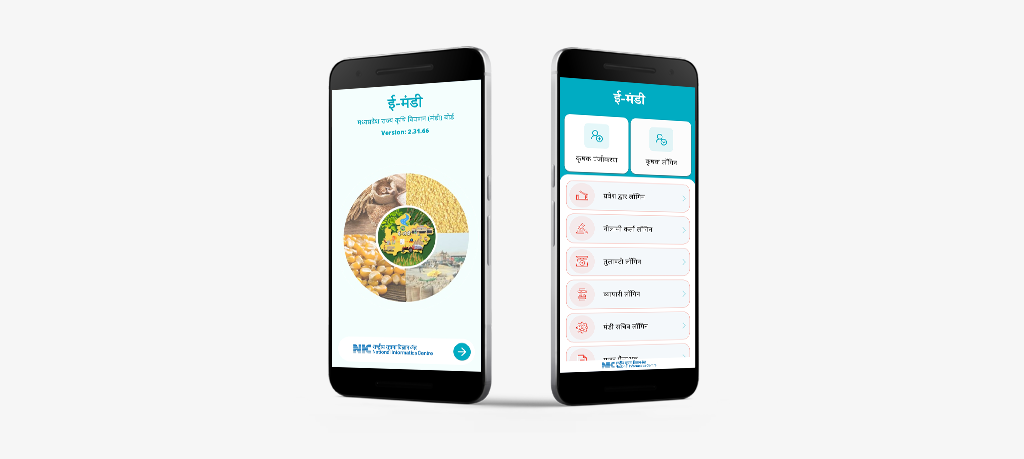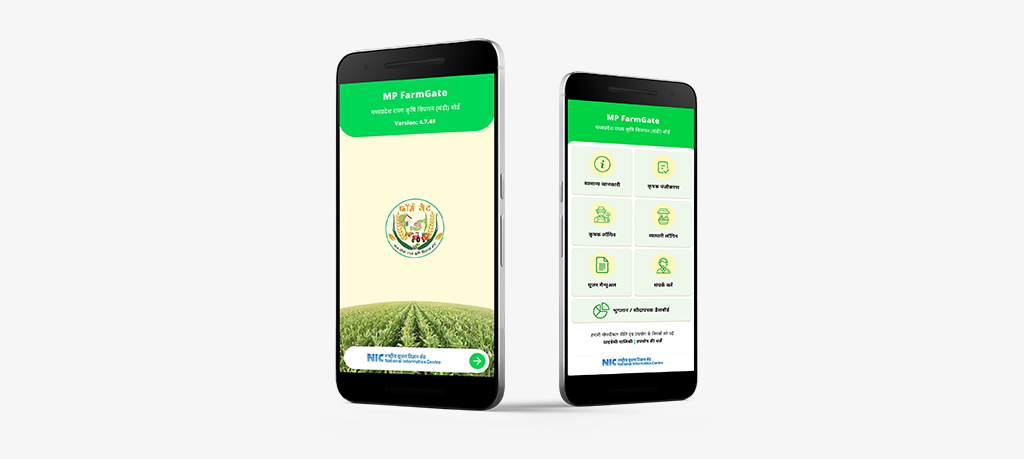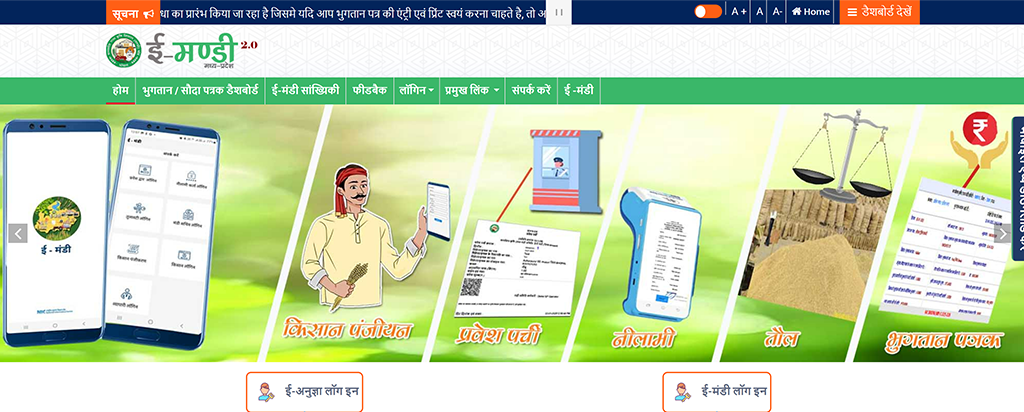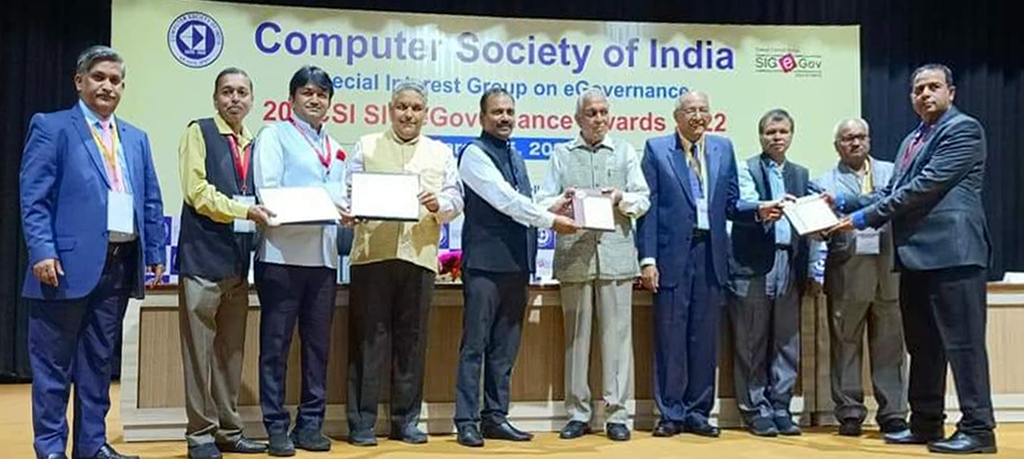Madhya Pradesh is transforming its traditional mandi (market) system into a modern, digital ecosystem. Supported by the state’s Department of Farmers Welfare and aligned with the national vision, the reform introduces three key digital platforms: eMANDI App for automating yard operations, M.P. Farm Gate App for direct farmer trade, and eANUGYA for managing digital permits and compliance. This shift from manual to digital processes ensures transparency, speed, and traceability across the entire agricultural value chain.
In the heartland of India’s agricultural economy, a silent revolution is reshaping the way farmers, traders, and APMC officials interact. Madhya Pradesh is leading the way in reimagining the traditional mandi system— once defined by handwritten ledgers, verbal negotiations, and long queues—into a modern, transparent, and efficient digital ecosystem. What was once slow and opaque is now fast, accountable, and accessible through mobile apps and web-based platforms.
This transformation is backed by the Department of Farmers Welfare and Agriculture Development, Government of Madhya Pradesh, in alignment with the national vision of the Ministry of Agriculture & Farmers Welfare (MoAFW), Government of India. At the core of the state’s APMC reforms lies the phased rollout of three integrated digital platforms:
- eMANDI App – Streamlines APMC yard operations, including arrival, weighing, auctioning, and settlement of payments.
- M.P. Farm Gate App – Facilitates direct, doorstep trade for farmers, reducing their need to travel and expanding access to buyers.
- eANUGYA System – Manages digital No Objection Certificates (NOCs), gate passes, dispatch permissions, and fee reconciliation with complete audit trails.
Together, these platforms form a comprehensive, end-to-end digital ecosystem that ensures:
- Traceability – Every lot, from first sale to final dispatch, is digitally recorded and trackable.
- Accountability – Secure, tamper-proof e-documents and automated processes minimize fraud and manual intervention.
- Efficiency – Reduced paperwork, real-time dashboards, and mobile accessibility save time and resources for all stakeholders.
This integrated system has not only improved the ease of doing business in agricultural markets but has also built greater trust among farmers, traders, and regulatory authorities. It represents a model for other states to emulate in driving digital agriculture and rural empowerment.
The Foundation
Agricultural Produce Market Committees (APMCs) in Madhya Pradesh are governed by the Krishi Upaj Mandi Adhiniyam, 1972, which regulates the first sale of notified crops. These committees are mandated to protect farmers from exploitation, ensure fair price discovery, and collect market fees while overseeing infrastructure like auction yards, weighbridges, and storage units.
However, for decades, mandi operations relied heavily on manual processes—resulting in delays, limited pricing transparency, paperbased disputes, and high administrative burden. Recognizing these challenges, the state initiated a phased digital transformation to modernize mandi governance and empower all stakeholders, especially farmers.
Phased Rollout Timeline
- Phase I (2019): Digitalization of billing and NOC (Anugya) workflows
- Phase II (2022): Launch of M.P. Farm Gate App for direct farmer-to-trader trade
- Phase III (2024): Statewide implementation of eMANDI App for full yard-level digitization
eMANDI App
The eMANDI App digitizes every aspect of agri-trade conducted within the APMC yard. From gate entry to final payment, the platform enables secure, real-time, and legally compliant transactions. Built on a role-based architecture, the app caters to secretaries, auctioneers, traders, licensed weighmen, and farmers.
 Fig 9.1 : eMandi App
Fig 9.1 : eMandi App
Workflow Overview
- User Setup: Secretaries assign operational roles within the mandi
- Farmer Entry: OTP-based registration; 72-hour digital gate pass issued
- Auction (Nilami): Digitally conducted; auto-generates Anubandha Patrak
- Weighing (Taul): Carried out by licensed Tulaiyyas; results in Taul Patrak
- Payment: Trader initiates entry; farmer confirms via OTP; SMS alert issued
I extend my heartfelt congratulations to NIC MPSC and Officials of MPSAMB for the successful implementation of eMANDI, now operational across 259 APMCs in the state. This digital transformation has significantly benefited farmers and traders, streamlining processes and ensuring greater transparency.
I look forward to continued collaboration with NIC to develop even more robust and innovative solutions that further strengthen the agricultural marketing ecosystem in Madhya Pradesh. Wishing the NIC M.P and M.P Mandi Board team continued success!

Kumar Purushottam, IAS
Commissioner & Managing Director Mandi Board, BhopalControls and Legal Compliance
- Data edits for gate entry, auction, or weighing are permitted within 72 hours, with audit trails and approvals from designated officers
- Farmers can cancel trades before weighing, subject to approval
- Fully aligned with the Krishi Upaj Mandi
Adhiniyam, 1972, including:
- Clause 17(15) – Gate Entry
- Clause 36 – Weighing and Anubandha Patrak
- Clause 37(2) – Bhugtan documentation
The result is a legally sound, transparent, and tamper-proof transaction trail—laying the groundwork for trust and efficiency.
M.P. Farm Gate App
To expand market access for small and marginal farmers, Madhya Pradesh launched the M.P. Farm Gate App in October 2022. The app enables farmers to sell produce directly from their fields, reducing the need to physically travel to the mandi while maintaining full trade transparency and regulatory oversight.
 Fig 9.2 : M.P. Farm Gate App
Fig 9.2 : M.P. Farm Gate App
Farm-Centric Workflow
- Secure Onboarding:
- Farmers register via OTP
- Traders enrolled under the Lok Sewa Guarantee Act
- Crop Listing:
- Farmers enter crop type, quantity, and expected price
- Listings are geo-linked to local APMCs
- Digital Bidding & Deal Finalization:
- Verified traders place bids
- Selected bid generates Sauda Patrak accepted by both parties
- Payment and Compliance:
- Trader must upload Bhugtan Patrak within 24 hours
- Verified by APMC Secretary and automatically linked with eANUGYA
Benefits for Farmers
- Reduced transport cost and time
- Faster, transparent payments
- Minimized middlemen dependency
- Inclusion of digitally underserved farming segments
The Farm Gate App closes the distance between the producer and the market—bringing the mandi to the village.
eANUGYA
Completing the trade-to-dispatch cycle, eANUGYA ensures that movement of goods is legal, trackable, and transparent. It digitizes the issuance of dispatch permissions (Form-9), consignment entries (Form-10), and calculation of all fees due to the mandi board.
| 41,315 Licensed Traders Registered with APMC Committees across Madhya Pradesh |
|
| 42,620 Self-Registered Traders Using the eANUGYA platform independently |
|
| 1,694 Bhugtan Patraks Generated Today Registered with APMC Committees across Madhya Pradesh |
|
| 7.97+ Crore Total Bhugtan Patraks Issued |
Fig 9.3 : eANUGYA at a glance
Key Functionalities
- Bhugtan Upload: Trader submits digital payment receipt
- Auto Fee Calculation: Calculates APMC and Nirashrit Kalyan Fees
- Stock Update: Inventory and accounts auto-updated for both seller and mandi
- Dispatch Authorization:
- Trader fills Form-10
- Form-9 (eANUGYA) auto-generated
- Destination APMC verifies receipt
From Manual to Digital: What’s Changed
| Before | After (eANUGYA) |
| Dispatched only 10-12 PM | 24*7 digital access |
| Paper-based Form-9 and Form-10 | Secure, retrievable e-documents |
| Manual fee calculation and delays | Automated, transparent fee reconcilition |
| No real-time inventory visibility | Live dashboards and audit logs |
| High dependency on APMC staff | Trader-managed, system-verified workflows |
eANUGYA ensures accountability, reduces fraud and supports end-to-end compliance—a critical step in building trust among stakeholders.
 Fig 9.4 : eAnugya Homepage
Fig 9.4 : eAnugya Homepage
Awards
The Madhya Pradesh APMC digital ecosystem— comprising the eMANDI App, Farm Gate App, and eANUGYA—received the CSI SIG eGovernance. Award of Appreciation 2022 for its innovation, scalability, and impact on farmer-centric trade reforms.
 Fig 9.5 : The trio of eMANDI App, Farm Gate App, and eANUGYA—was
recognized with the CSI SIG eGovernance Award for its innovation, scalability, and
impact.
Fig 9.5 : The trio of eMANDI App, Farm Gate App, and eANUGYA—was
recognized with the CSI SIG eGovernance Award for its innovation, scalability, and
impact.
Conclusion
With the combined implementation of eMANDI, Farm Gate App, and eANUGYA, Madhya Pradesh has transformed its APMC ecosystem into a digitally unified, legally compliant, and farmer-first network. The transformation has resulted in:
- Faster payments and reduced costs
- Transparent bidding and pricing
- Real-time policy-ready data
- Improved compliance and revenue assurance
More than a technological upgrade, this initiative represents a paradigm shift in agricultural governance—placing farmers at the center of a digital economy and enabling a model that’s replic able across India.
As the nation moves toward Digital India @2047, the Madhya Pradesh model offers a ready blueprint for building inclusive, smart and sustainable agri-markets—proving that meaningful reform can begin with a single app and grow into a statewide movement.
Contributors / Authors

Verghese Abraham Sr. Technical Director abraham.v@nic.in

Musharraf Sultan Sr. Technical Director sultan.m@nic.in
- Tag:
- Internet
- Technology
- eGov
- Tech
State Informatics Officer
NIC Madhya Pradesh State Centre
‘C’ & ‘D’ Wing, 1st Floor, Satpura BHawan, Bhopal Madhya Pradesh - 462004







